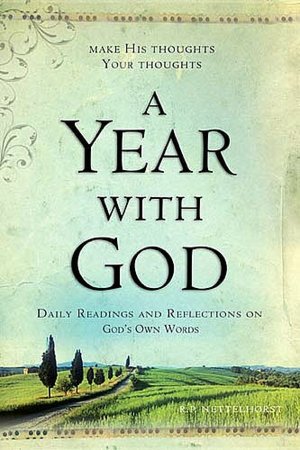In the world that Jesus had come to live in, women and men rarely spent time alone together. It was considered, as in modern Moslem culture, disreputable for a woman to spend time alone with a man to whom she was not in some way related. But Jesus tended to resist the constraints of his culture, and so when he found himself alone at a well with a woman, he simply struck up a conversation and asked her for a drink of water from the well.
Beyond the fact that she was a woman, there was one other strike against her from a Jewish perspective: she was a Samaritan, a member of an ethnic group that had been formed during the Babylonian captivity when the poorer Jews left behind in the land had intermarried with the foreigners transplanted to the region by the conquering Babylonians. According to the mainstream culture, Samaritans were vile sinners and heretical. Jews customarily went out of their way to avoid Samaritans.
Therefore, when Jesus talked to this young woman and asked for some water, her reaction was one of shock: “You are a Jew and I am a Samaritan woman. How can you ask me for a drink?” His behavior did not correspond to what she was used to.
Jesus answered her, “If you knew the gift of God and who it is that asks you for a drink, you would have asked him and he would have given you living water.”
“Sir,” the woman said, “you have nothing to draw with and the well is deep. Where can you get this living water? Are you greater than our father Jacob, who gave us the well and drank from it himself, as did also his sons and his flocks and herds?”
Jesus answered, “Everyone who drinks this water will be thirsty again, but whoever drinks the water I give him will never thirst. Indeed, the water I give him will become in him a spring of water welling up to eternal life.”
The woman said to him, “Sir, give me this water so that I won’t get thirsty and have to keep coming here to draw water.”
He told her, “Go, call your husband and come back.”
“I have no husband,” she replied.
Jesus said to her, “You are right when you say you have no husband. The fact is, you have had five husbands, and the man you now have is not your husband. What you have just said is quite true.”
“Sir,” the woman said, “I can see that you are a prophet. Our fathers worshiped on this mountain, but you Jews claim that the place where we must worship is in Jerusalem.”
Jesus declared, “Believe me, woman, a time is coming when you will worship the Father neither on this mountain nor in Jerusalem. You Samaritans worship what you do not know; we worship what we do know, for salvation is from the Jews. Yet a time is coming and has now come when the true worshipers will worship the Father in spirit and truth, for they are the kind of worshipers the Father seeks. God is spirit, and his worshipers must worship in spirit and in truth.”
The woman said, “I know that Messiah” (called Christ) “is coming. When he comes, he will explain everything to us.”
Then Jesus declared, “I who speak to you am he.” (see John 4:1-43 for the whole story)
The implication in Jesus’ words that she had “had five husbands” was not that she had been married and divorced five times, but rather that she had slept with men who were married to other women and that the man she was currently involved with was committing adultery with her, too. She is rather shocked and tells Jesus that he is obviously a prophet—and then she changes the subject to theology, asking him about where the right place to worship might be. She’d rather argue over one of the points that had divided the Jews and Samaritans for centuries rather than talk about the train wreck her life was.
Jesus calmly answers her question, letting her know that while the Jews were correct in worshipping in Jerusalem, the time had come for a change when the place of worship really didn’t matter at all: the real worshippers of God worshiped him in their spirits and in truth.
She tells Jesus, in essence, “gee, that’s fascinating” with a roll of her eyes and then comments, almost off the cuff, “well, whatever; when the Messiah comes, he’ll explain all that stuff, eh?”
At which point Jesus tells her something that he didn’t often tell people point blank: “I’m the Messiah.”
But for her it was necessary, and with those words, everything suddenly clicked into place for her: she realized that he wasn’t yanking her chain, that in fact, she actually was in the presence of the long awaited Messiah. She quickly ran back to her village and told everyone she could find. The result was something of a revival: nearly the entire village accepted Jesus as the Christ. Jesus was consistently successful in reaching those that the religious establishment rejected, whether it was tax collectors, prostitutes, or in this case, Samaritans.
What Jesus was doing was not earning him respect among the leadership of his people. But he wasn’t particularly concerned about that. He was just a doctor, healing the sick.
 My latest book, The Complaint of Jacob, is now available for the Kindle. The subject: if God loves me, then why is everything going wrong?
My latest book, The Complaint of Jacob, is now available for the Kindle. The subject: if God loves me, then why is everything going wrong?
Is there some formula we can memorize that will get us through life in one piece, with ourselves and our families living productive and prosperous lives? Where is the abundant living we thought we were guaranteed? What are we missing? What key do we need to unlock the blessings of God and finally achieve the wonderful life we know God wants us to have?
A low point in Jacob’s life offers a clue. The one true love of his life was dead. Joseph, his favorite, the oldest son of his beloved, had been gone for twenty-five years. Now Simeon had been taken from him and a tyrant in Egypt was demanding the last link he had to his dead wife. Beside himself with grief, we find his reaction in Genesis 42:36:
Their father Jacob said to them, “You have deprived me of my children. Joseph is no more and Simeon is no more, and now you want to take Benjamin. Everything is against me!”
The circumstances of his life, from his perspective, from the perspective of his sons standing around him, made his complaint that everything was against him, fully reasonable and perfectly understandable.
And yet, for those of us reading the story, the fascinating thing about his words is that we know that they couldn’t be more wrong. Despite the fact that his words seemed so obviously, unassailably true to him, we the readers of this little episode know something that Jacob doesn’t: we know that Joseph is not only not dead, but he is second in command in Egypt, then the most powerful and most wealthy nation on the planet. We also know that there’s no way for poor Jacob to know any of that.
His perception, his perspective of reality, is incorrect.
So how does this apply to us? Perhaps our problem isn’t the hurricane of life; perhaps it is only a problem of perspective, like poor Jacob.
Many “self-help” books seem to argue that success in life, however one measures success, can be gained by a formula, whether that formula is a prayer, rooting out hidden sin, or following a list of good things to do. I suggest the Bible takes a different approach, an approach to life that such books, and many Christians, are missing.
The question is not, what can I do to change my circumstances? The question is rather, do I believe God? And what can that answer do about how I then understand my circumstances?
 Send to Kindle
Send to Kindle
 A Year With God
A Year With God A Year With Jesus
A Year With Jesus The Bible's Most Fascinating People
The Bible's Most Fascinating People The Bible: A Reader's Guide
The Bible: A Reader's Guide Antediluvian
Antediluvian Inheritance
Inheritance John of the Apocalypse
John of the Apocalypse Somewhere Obscurely
Somewhere Obscurely The Wrong Side of Morning
The Wrong Side of Morning